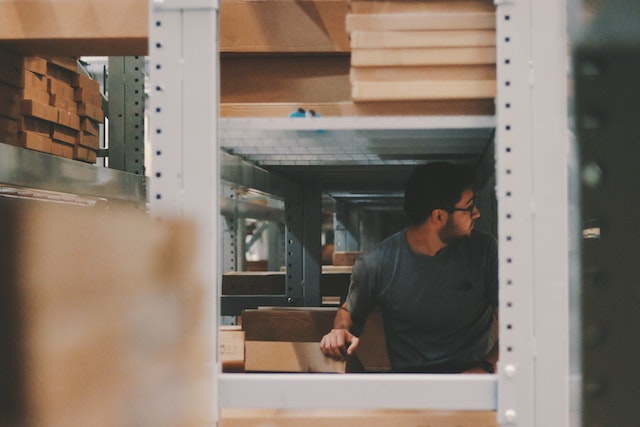Before renting a space, you should know the ins and outs of self-storage facilities. These five crucial considerations are useful whether you’re an individual searching for extra room for personal possessions or a company searching for a secure storage solution. Knowing what to look for in a self-storage facility, from safety features to unit size, accessibility, climate control, rental fees, and insurance coverage, is essential. By investigating these factors, you may pick a facility with full confidence that it will provide adequate safety, convenience, and protection for your belongings.
1. Safety Precautions
The safety of your stuff should be your top priority when deciding on a self-storage facility. Look for places that have reliable security measures so you can relax. The security of the building can be improved by adding features like gated access with secure entry codes, surveillance cameras that cover the common areas, individual apartment alarms, and on-site management. Thanks to these precautions, your stored belongings will be safe from theft and trespassers. Picking a storage facility with a strong emphasis on safety can give you peace of mind knowing that your possessions are protected.
2. Size of Units and Ease of Access
It is important to investigate the size and accessibility of the units at a self-storage facility to ensure that they will fulfill your demands. Measuring the dimensions of your items will help you determine how much space you’ll need to store them. Choose a unit larger than you anticipate needing for optimal adjustability and convenience. The structure’s accessibility features should also be taken into account. You can access your belongings at some storage facilities any time, day or night. Because of the possibility of time constraints imposed by others, the facility’s hours of operation must coincide with your own. When looking for a self-storage facility, it’s essential to take into account the unit size and accessibility options available to ensure that you find a place that works for your storage needs.
3. Climate Regulators
It’s crucial to think about whether or not climate control will be necessary for your belongings when selecting a self-storage facility. Climate-controlled storage containers provide ideal conditions for storing delicate items by maintaining a constant temperature and humidity. Electronics, wooden furniture, artwork, pictures, and crucial papers are especially vulnerable to the destruction that might result from drastic changes in temperature and humidity.
The best method to prevent damage and prolong the life of your belongings is to keep them in a storage facility with a regulated climate. Choose a climate-controlled storage facility if the safety and well-being of your valuables, whether sentimental or monetary, are important to you. This is especially true if you plan to store your possessions for an extended period.
4. Contracts and Rental Fees
It’s important to weigh the monthly fee and other lease terms before signing on with a self-storage facility. Find out how much things cost at the facility and see if that works for your budget. Consider the unit’s square footage, proximity to essential services, and other features. Long-term rents and upfront payments may qualify for savings at some storage facilities; investigate these possibilities if they apply to your situation.
You should also read the contract carefully so that you are aware of the payment plan, any late penalties that may be incurred, and any other applicable charges. If you have any doubts or questions, it’s best to ask them so that you can avoid any unpleasant or costly shocks down the road. By comparing storage facilities’ rental rates and terms of service before signing a contract, you can find one that meets your needs without breaking the bank.
5. Protected by Insurance
Before picking a self-storage facility, you must weigh your insurance alternatives for your stored belongings. While buildings take safety precautions, having sufficient insurance is an additional safety net. Find out if the facility provides self-storage facility insurance or if you need to get your policy. You should also double-check with your insurance provider to determine if they cover storage units. To ensure your belongings are adequately covered, you should familiarize yourself with the policy’s specifics, such as its coverage limitations, deductibles, and exclusions.
Conclusion
If you fully grasp these five factors, you’ll be more equipped to choose a self-storage facility. You can find a suitable storage facility for your belongings if you put security first, evaluate the unit size and accessibility, consider climate control, comprehend rental pricing and contracts, and ensure you have enough insurance coverage. Before deciding, ensure you have done your homework on the available facilities by researching them, asking questions, and reviewing contracts. You may relax knowing your items are stored in a clean, safe facility.
